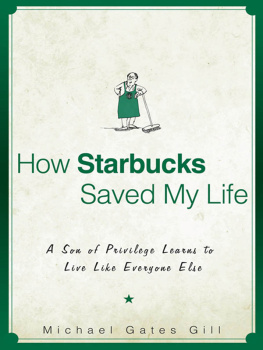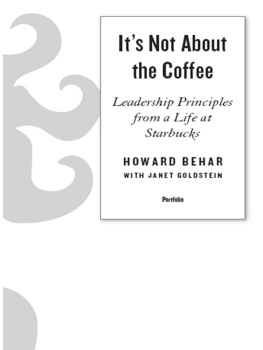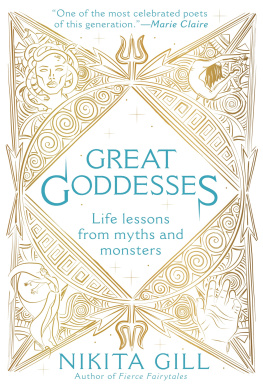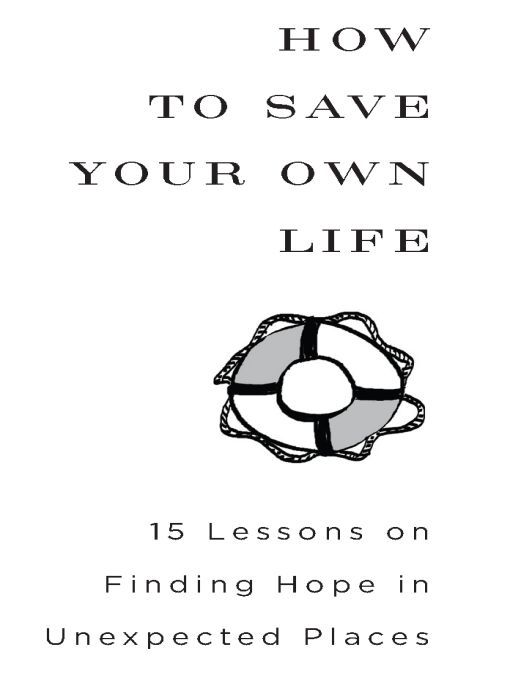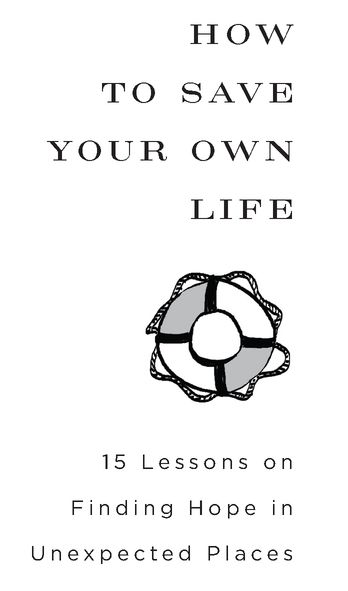Table of Contents
MICHAEL GATES GILL
This book is dedicated to Alison Larkin, a true friend and a great writer.
INTRODUCTION
BLESSINGS IN DISGUISE
When I was fired from my job and then diagnosed with a brain tumor, I thought my life was over.
And I was right.
My old life was over.
But then a whole new and better life began.
What I did not expect was that I could create a new life that would make me happier than ever. While no one would ever voluntarily choose personal or professional disasters, such shocking experiences can be blessings in disguise.
Sometimes, when the things we fear the most happen, loss can surprise us and give us a chance to find a whole new level of happiness.
For it is not what life brings to you but what you bring to life that can make all the difference.
In the following pages you will find true-life lessons that will help you cope with the inevitable misfortunes of our world that may hit you, often when you least expect it. These lessons will also help you create a life you love.
By following these 15 simple lessonsthe 15 Ls, I call themyou will be able to make the hard times into some of the best times of your life.
These lessons have been hard-won. I would not voluntarily have set out to learn any of them. Yet life grabbed me by the neck and threw me out of my privileged spot at the top of the American Establishment. It was only through this expulsion that I was able to learn.
I was born the favored son of a famous father. Brendan Gill worked for The New Yorker magazine. This was before the Internet had become so pervasive and before television had become a vehicle for twenty-four-hour news and drama. In my fathers era print was a dominant medium, and his magazine was regarded as the greatest literary source of contemporary insight and distinguished writing in America. Every week people would look forward to a new story by J. D. Salinger, or follow a piece of Truman Capotes new nonfiction realism with horrified fascination, or laugh at James Thurbers madcap illustrations and his original humor.
My father brought home many of these illustrious writers and artists to play with me in our twenty-five-room mansion. E. B. White, author of Charlottes Web and Stuart Little, would bend to tell me that he always thought it was such a shame to grow up. Charles Addams, whose cartoons were the inspiration for The Addams Family on television, would stand in a corner wearing a helmet from the Middle Ages to get me to laugh.
Later in life Ernest Hemingway would challenge me to run before the bulls in Pamplona (an offer I barely survived).
I went to fancy parties with Jackie Onassis and other glitterati of the world when it seemed like these intelligent, attractive people could accomplish anything.
I was given a Yale educationadmittedly because my family had gone there for generations.
After Yale, a Yale Man who owned the largest advertising agency in the world gave me a job.
Over the years at J. Walter Thompson I was given raises and promotions by people who looked just like me and were from identical backgrounds.
We would look at one another and exclaim: Youre great!
No, youre great!
Self-love and self-congratulation were thick in the atmosphere of what we regarded as an exclusive club of elite types who could cleverly manipulate the masses.
The sad fact is I thought at the time that I deserved all I had been given and that it was because of my rare talent that I happened to be living at the height of the American Dream.
I was impatient with others who couldnt seem to succeed as I had done.
Why dont they work harder? I would say to my children.
Why dont they get a good education for themselves?
Underneath all my objection to other people of different races, classes, or backgrounds was the unspoken criticism: Why cant they be... more like me?
Rex Harrison, who played the arrogant professor in My Fair Lady, uttered similar words when he complained: Why cant a woman be more like a man?
Rex was someone who was born to play that role of the feeling of superiority personified.
When he was starring on Broadway in the sold-out show, he told my father that he would like to get away for a quiet weekend in the country. My father immediately offered Rex the use of The Bungalow, our summer home.
It is rather rustic, my father warned him.
But thats exactly what I need, Rex said, planning a weekend in late August.
As the visit approached, Rex called my father. Brendan, I am delighted to take you up on this offer. My needs are very simple. Just three: I need an experienced driver to take me to your place, drive me around while there, and bring me back to the city. I need a cook, of course. And a case of Veuve Clicquot vintage champagne. Ive gotten rather fond of that particular libation. But thats all I need, my dear Brendan, and I will be happy as a clam.
Actually, as it turned out, Rex needed a bit more. He needed a television to watch the tennis matches. He needed to be waited on by his beautiful sixth wife, Mercia, who came along for the weekend, and virtually everyone else.
In other words, he needed the world to revolve around his presence with a kind of unstinting service to his every wish.
We were all willing to accommodate Rex because he could be so charming when all his needs were perfectly catered to.
There were a few minor scenes when Mercia was late bringing in a cup of hot tea or when the television got fuzzy at a match point. Rexs temper would flare with the sudden power of a summer storm.
Then, once the tea was brought and the television working, he was all sunny charm again.
Life could be so wonderful if Rex got exactly what he wanted. And all Rex wanted was to be treated like a king.
I was a lot like Rex (a name that actually means king).
I expected the world to hand me everything... and then I thought I had done everything required by thanking the world politely for being so understanding. All I wanted was to be treated like the king my mother had assured me I was. When I was born she had a miniature Adirondack chair built and inscribed with gold letters: King Gatesy. I would sit in it until I was two or three or four. My formative years were spent getting used to a regal outlook. It was a kind of throne for me.
As I grew up I always found it easy to be gracious when my every wish was met. And they were: I was given a gymnasium to play in and a Steinway grand piano to play on when I was a child. I followed my father to Yale and into the powerful secret society of Skull & Bones. I received an inheritance from my grandfather that allowed me to travel and see the world. My job was given to me because of my Yale connections. Having been given everything, I was completely unprepared to lose anything.


